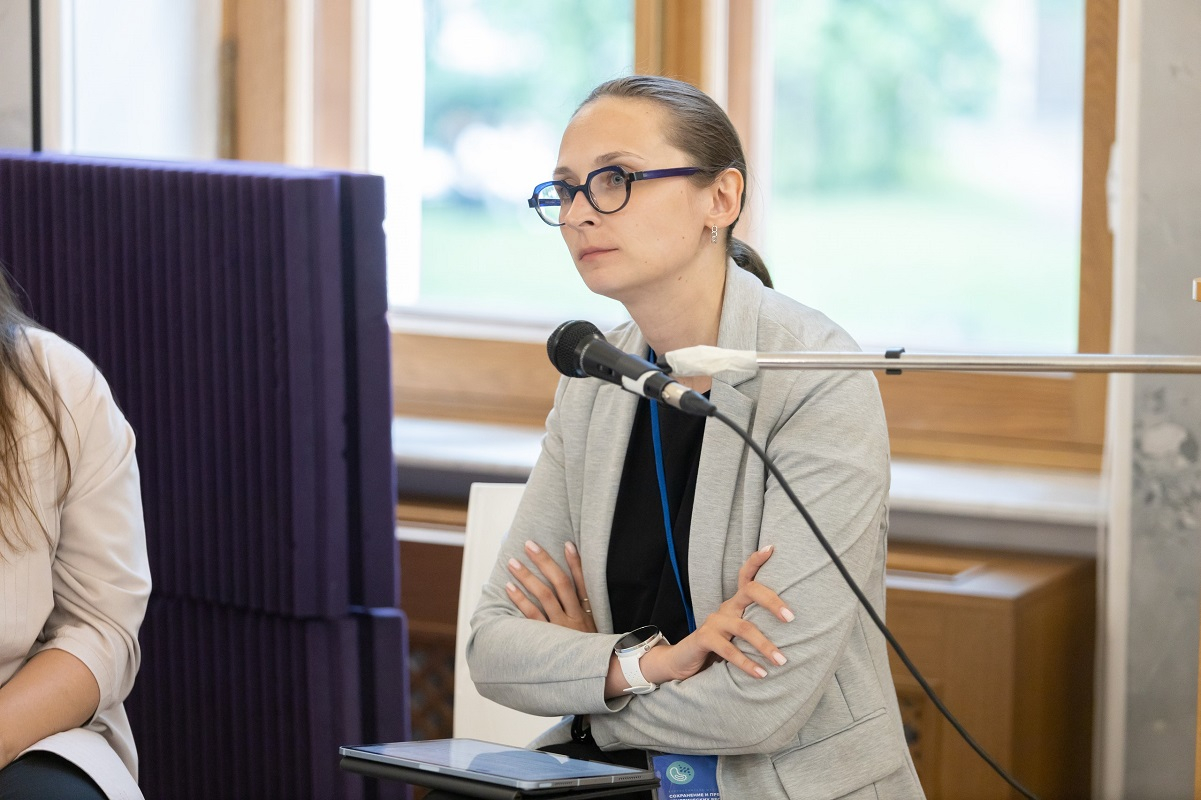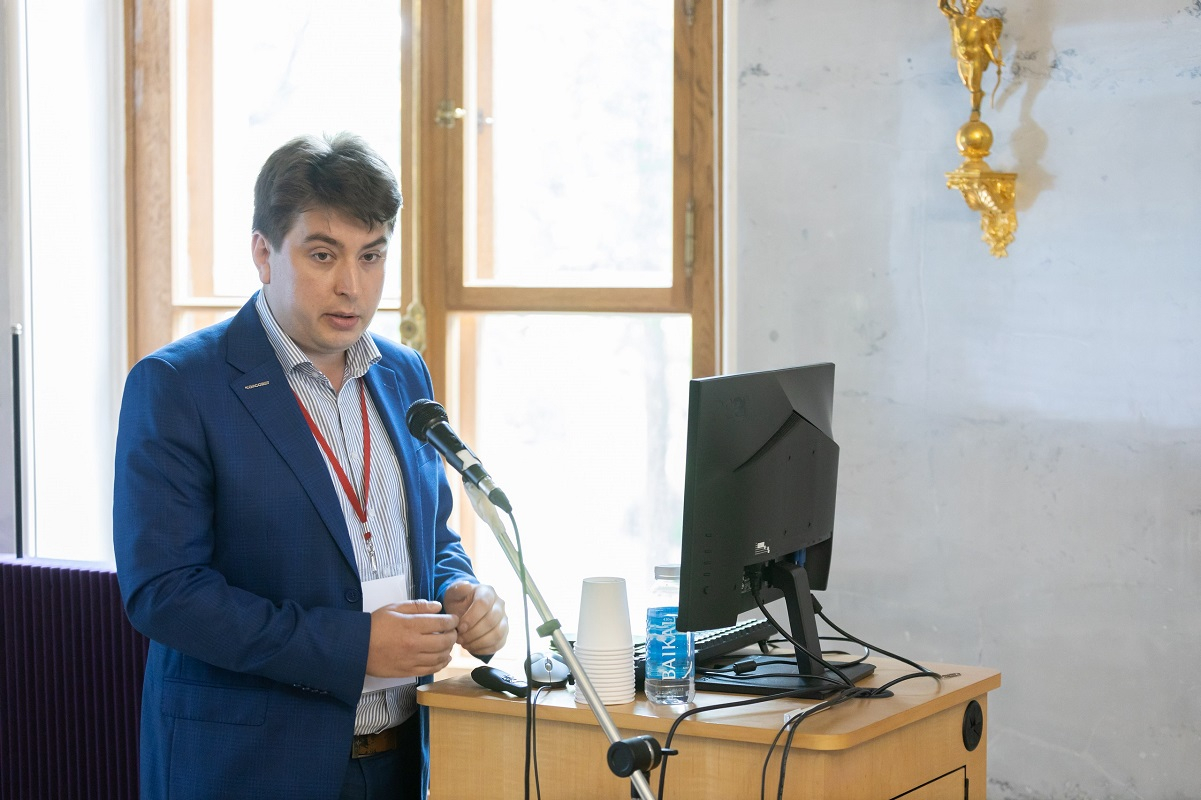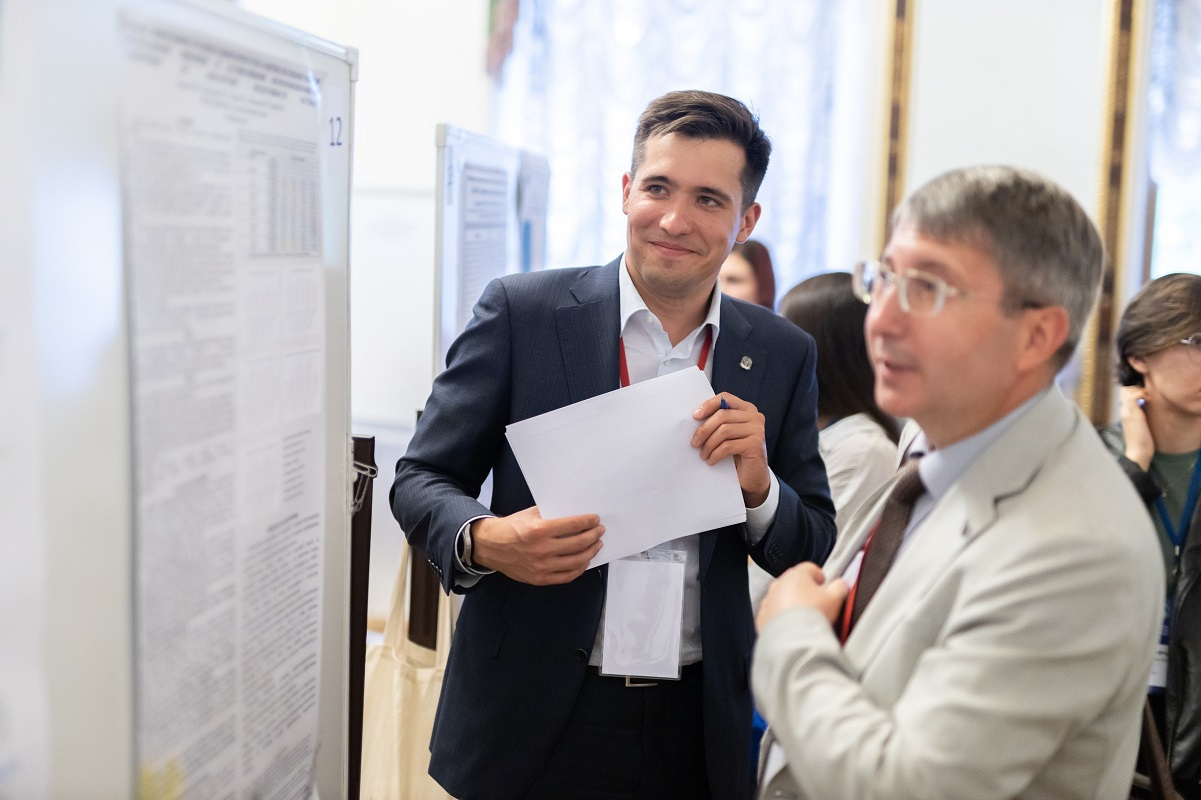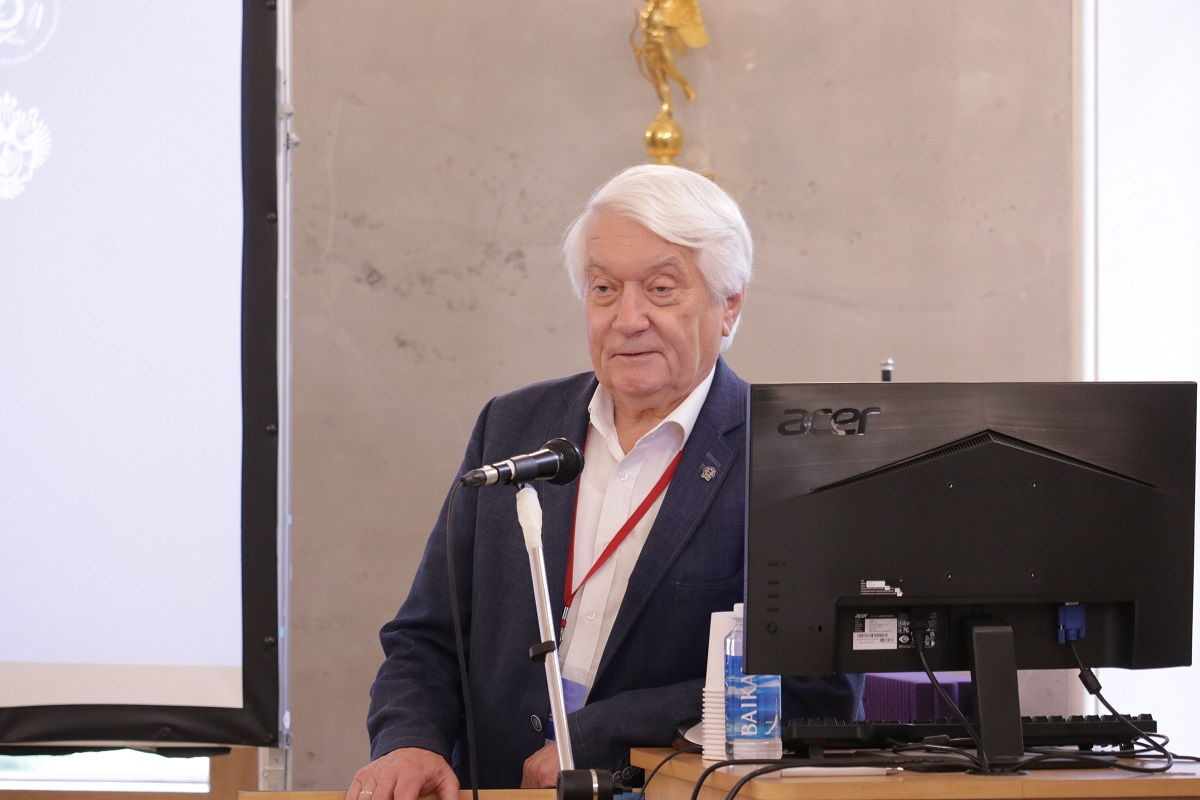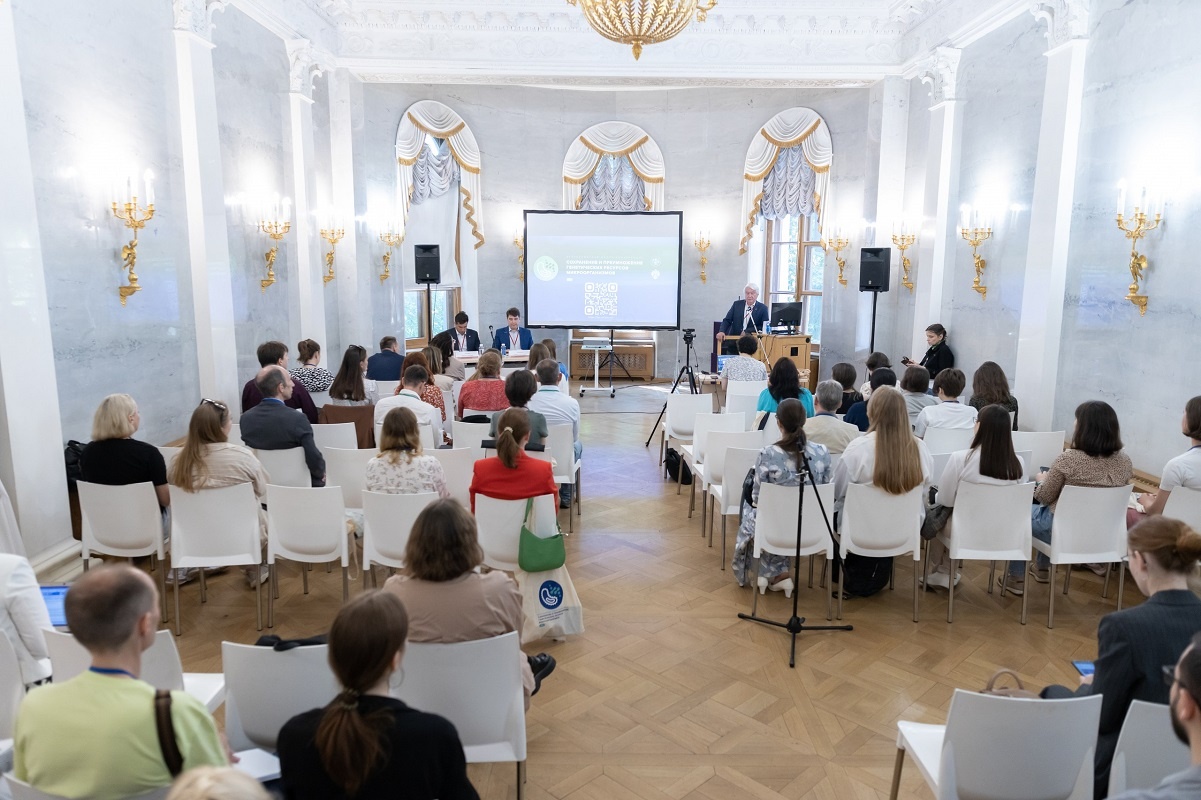St Petersburg University and business community discuss the conservation of and use of genetic resources of microorganisms
St Petersburg University has held the 2nd All-Russian conference school "Preservation and enhancement of the genetic resources of microorganisms". The event was part of the 2nd scientific forum "Genetic resources of Russia".
The 2nd scientific forum "Genetic resources of Russia" was held under the auspices of the Vavilov Society of Geneticists and Breeders in St Petersburg. The forum had nine conferences that highlighted current trends in how scientists study collections of genetic resources and use them in fundamental science, medicine, and agriculture.
The conference school "Preservation and enhancement of genetic resources of microorganisms" was organised by St Petersburg University and the All-Russia Research Institute for Agricultural Microbiology. It brought together both leading researchers and students in the field of microbiology, genetics of microorganisms, biotechnology and related scientific areas.
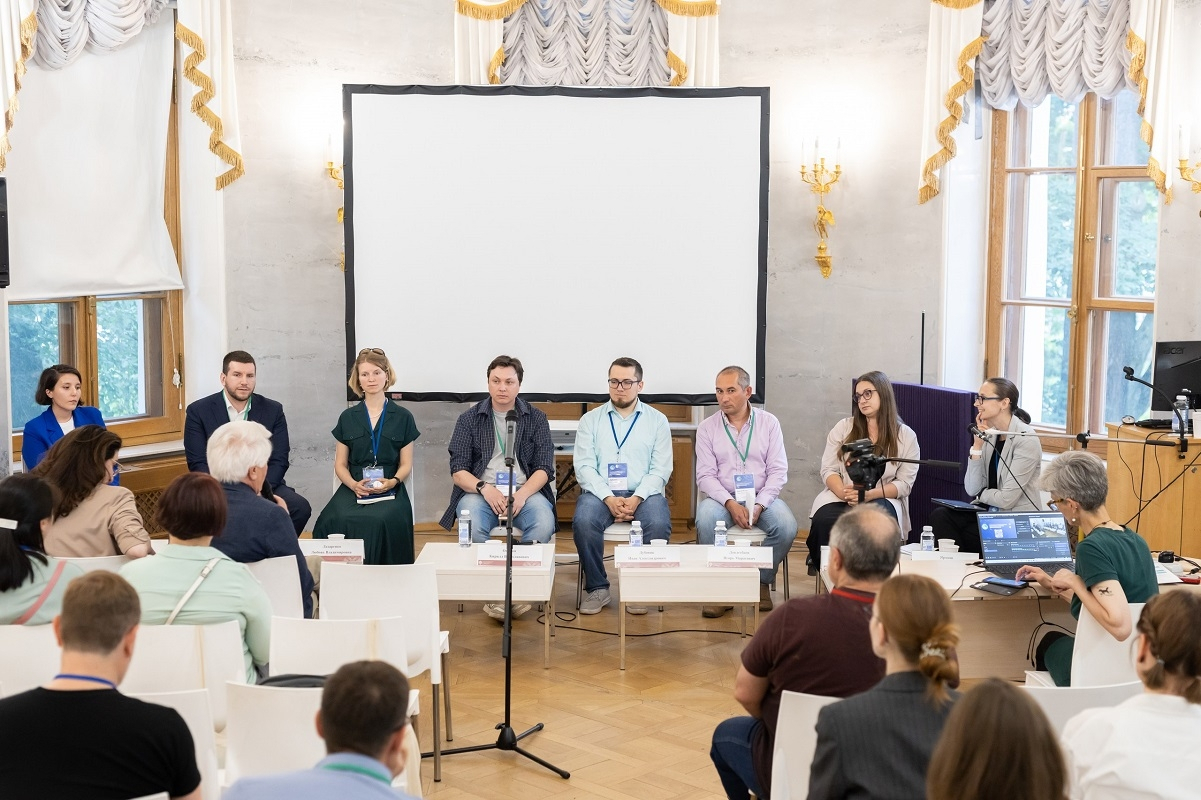
Professor Igor Tikhonovich opened the event and conveyed best wishes to the participants from Nikolay Kropachev, Rector of St Petersburg University. Professor Igor Tikhonovich is Member of the Russian Academy of Sciences, Academic Supervisor of the All-Russia Research Institute for Agricultural Microbiology, and Dean of the Faculty of Biology at St Petersburg University. He said that the University actively supports research in microbiology and genetic resources. St Petersburg University is currently implementing the task to increase the number of graduates who are equipped with up-to-date knowledge in the field of genetic technologies. To this end, the University strengthens admission to the relevant bachelor’s and master’s programmes and opens non-degree programmes.
Today, the conservation and enhancement of the genetic resources of microorganisms is a key topic. 95% of the microbes are uncultivated. Scientists cannot ‘force’ them to grow in standard laboratory media.
Professor Igor Tikhonovich, Member of the Russian Academy of Sciences, Academic Supervisor of the All-Russia Research Institute for Agricultural Microbiology, and Dean of the Faculty of Biology at St Petersburg University
‘This problem is slowly, but surely being solved by obtaining information about the genome of these microbes and selecting the media that have the enzymes whose genes we find there. Nevertheless, this area remains terra incognita. It is for our young geneticists, in particular our students and graduates, to explore,’ said Professor Igor Tikhonovich. ‘Experts strive to isolate genes found in viable but non-culturable microorganisms to introduce these genes into traditional biotechnological objects and observe what changes in the phenotype will occur. Many discoveries are therefore expected. Working with such genetic material is essential. It will always be in demand, as it can enrich scientific knowledge about the environment and about microorganisms, including genetic resources. Yet, scientists should be always aware that no harm is done. They should seriously think about possible consequences of using and generating such hybrid plasmids from non-cultivated species’.
In 2023, the University became the organiser of the event ‘Preservation and enhancement of the genetic resources of microorganisms’, said Kirill Antonets, a laureate of the Russian Presidential Prize in the field of science and innovation for young scientists; Chairperson of the organising committee of the conference school; and a leading research associate in the Department of Cytology and Histology at St Petersburg University and All-Russia Research Institute for Agricultural Microbiology. This evidences the role of St Petersburg University as an important centre for research in the field of microbiology and genetics of microorganisms.
According to him, this year’s scientific programme focused on five main areas. Among them were the following: biodiversity of microorganisms in natural ecosystems; economically valuable microorganisms: methods of detection and study; pathogenic microorganisms: diagnostics, study and control problems; and microbial consortia: features of the study of complex supraorganism systems and the accumulation, storage and systematisation of microorganisms and information about microorganisms.
‘This year, we have significantly redesigned the approach to organising the event programme. The emphasis was placed on the connection between bioresource collections of microorganisms and a practical level to show the ways how we can use them not only in fundamental research, but also in the applied aspect,’ said Kirill Antonets. ‘Deciphering the genetic information of various organisms is an essential part across the globe. Major projects for its collection and systematisation are being developed in all leading countries. We all know from school how important it is to preserve the biodiversity of natural ecosystems and take care of endangered species of living organisms. Today, we are developing a toolkit for analysing this diversity and for using the knowledge gained in human economic activity. There is every reason to believe that we are going to expand our capabilities in this area. We are beginning to realise what we need to preserve and how to do it. In this regard, events, like this conference, are of great help.’
At the conference school in 2023, leading Russian experts spoke about the latest achievements in the field of fundamental and applied research of microorganisms using modern methods of genetics, microbiology, molecular biology and biotechnology, and bioresource collections.
Today, the University scientists are conducting a number of research projects using unique bioresource collections created and maintained in St Petersburg University, said Anton Nizhnikov. Professor Anton Nizhnikov is Chairman of the Scientific Committee in Biological Sciences and Bioecology at St Petersburg University, Acting Head of the Department of Genetics and Biotechnology at St Petersburg University, member of the Coordination Council for Youth Affairs in Science and Education under the President of the Russian Federation, and Professor of the Russian Academy of Sciences. Among these projects is a project in the field of bacterial genomics, which is aimed to identify ‘useful’ genes. Not only can the products of these genes increase soil fertility but they also fight pathogens and reduce the use of chemical pesticides and fertilisers.
This year, the conference school focuses on a number of current areas in microbiology and genetics of microorganisms and creates a unique platform for presenting relevant information by scientists and students at St Petersburg University and for discussing it with other research teams.
Professor Anton Nizhnikov, Chairman of the Scientific Committee in Biological Sciences and Bioecology at St Petersburg University, Acting Head of the Department of Genetics and Biotechnology at St Petersburg University, member of the Coordination Council for Youth Affairs in Science and Education under the President of the Russian Federation, and Professor of the Russian Academy of Sciences
‘Discussing these research issues is important not only from the aspect of fundamental science, but also in the context of an attempt to find ways to solve the problems of "big challenges", such as antibiotic resistance and food security. In this regard, the conference had a round table ‘What does business want to get from science?’. At the round table, the representatives of academic and business communities discussed ways to ensure effective interaction to bridge research and practice,’ said Anton Nizhnikov.
The moderator of the round table ‘What does business want to get from science?’ was Anastasia Yarmosh, Vice-Rector for Strategic Development and Partnership at St Petersburg University. The round table brought together representatives of Sibbiopharm Ltd.; Bionovatic; Biocad; Early Birds by Accellena; Fermentra; Helicon; and Geropharm. The discussion was attended by Igor Tikhonovich, Anton Nizhnikov, and Anzhela Asaturova, Director of the Federal Research Centre for Biological Plant Protection. St Petersburg University pays special attention to cooperation with the business community, said Anastasia Yarmosh. Yet, it is necessary to intensify work on ensuring a ‘seamless’ interaction between the research cluster and entrepreneurs.
It is important to minimise problems for both educational organisations and the business community at the initial stages of joint work.
Anastasia Yarmosh, Vice-Rector for Strategic Development and Partnership at St Petersburg University
‘It is necessary to consciously create projects to ensure that the research findings and outcomes will continue to develop in the business space. It should be a smooth and painless transition. There should be no situations when any of the stages of work would increase the risks for the participants in the interaction,’ said Anastasia Yarmosh, Vice-Rector for Strategic Development and Partnership at St Petersburg University.
The University has been working for several years to ensure a "seamless" interaction between researchers and the business community, said Anastasia Yarmosh. St Petersburg University offers academic programmes developed with the participation of large companies. Among them are BIOCAD and Gazprom Neft Science and Technology Centre. They help students understand the specifics of working at the intersection of fundamental science and business. Additionally, the University has another format for cooperation with companies, i.e. joint laboratories. Among them is the Laboratory for Digital Modelling at St Petersburg University.
St Petersburg University is also one of the first higher education institutions in Russia to organise its own contest for innovative and commercially promising projects, i.e. "SPbU Start-up".


